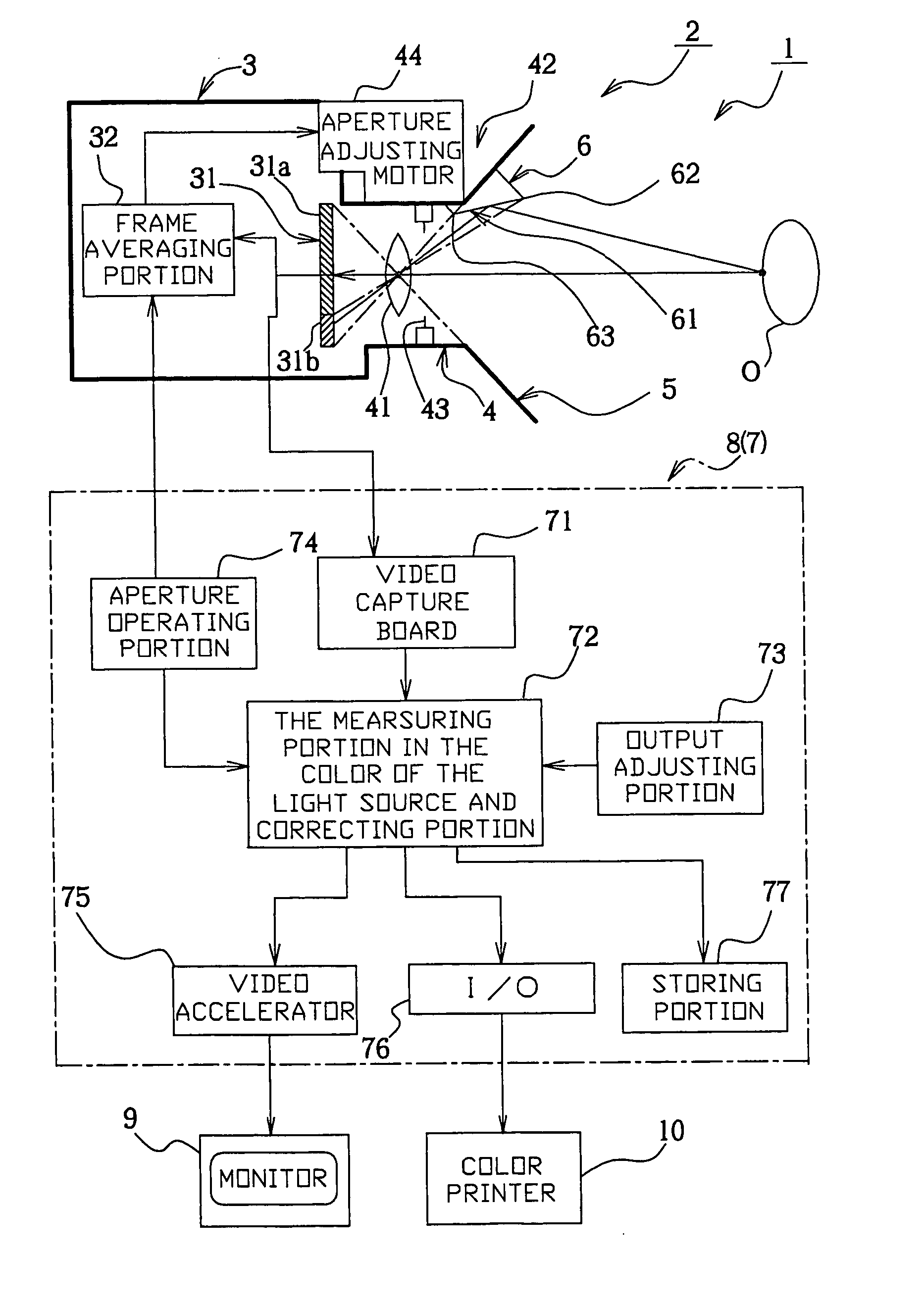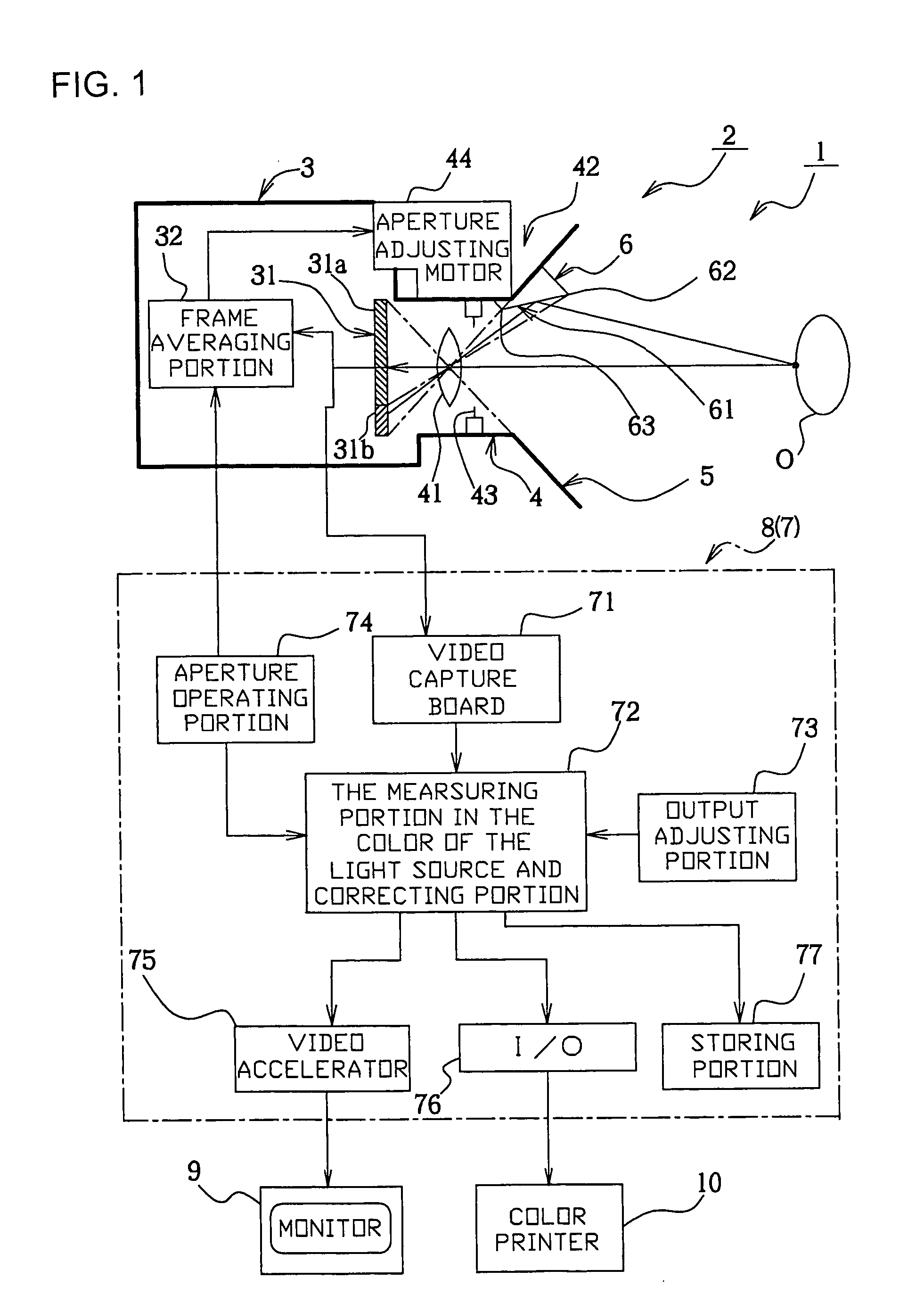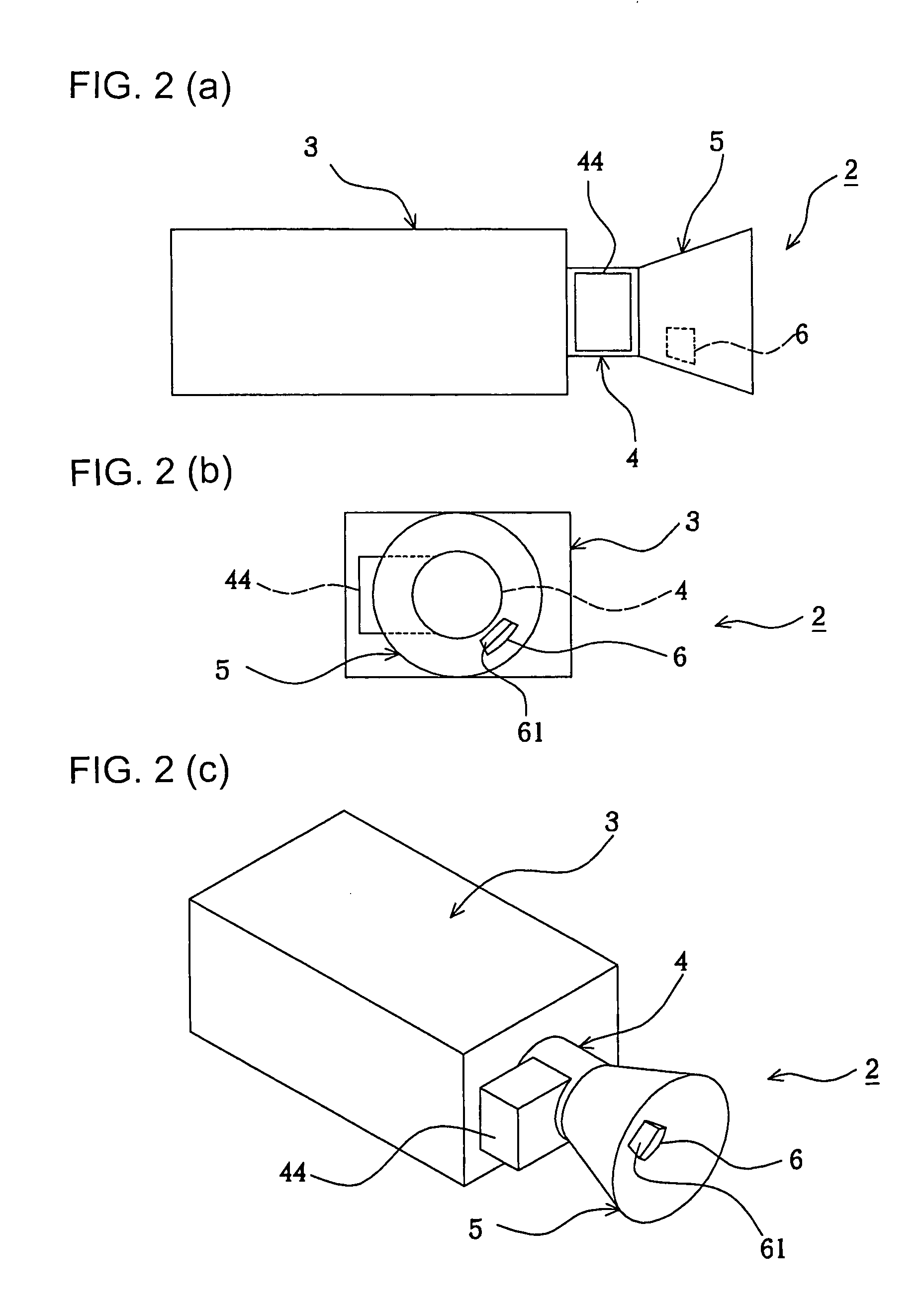Image pickup system, image processor, and camera
a technology of image processing and image capturing system, which is applied in the field of image capturing system, image processing apparatus and camera, can solve the problems of large amount of calculations that must be made by computers, subject to change, and difficult to display the image captured by the camera in constant colors regardless of the kind of incident light, etc., to achieve color constancy or intensity stabilization, perform color correction, and simple calibration
- Summary
- Abstract
- Description
- Claims
- Application Information
AI Technical Summary
Benefits of technology
Problems solved by technology
Method used
Image
Examples
first embodiment
[0101] Next, the present invention will be described with reference to FIGS. 1 through 14. First, alphabetical codes to be used in the description will be defined here below: [0102] XMX: Maximum number of pixels in a horizontal row in an image. [0103] YMX: Maximum number of pixels in a vertical row in the image. [0104] NMIN: Minimum value of a reflection surface boundary. [0105] NMAX: Maximum value of a reflection surface boundary. [0106] S: User-defined image brightness coefficient. [0107] x: Horizontal location of a pixel of the image on a coordinate system. [0108] y: Vertical location of the pixel of the image on the coordinate system. [0109] rd[x] [y],gd[x] [y],bd[x] [y]: Direct image signal values in red, green and blue channels respectively. [0110] rz[x] [y],gz[x] [y],bz[x] [y]: Zero image signal values in the red, green and blue channels respectively. [0111] r[x] [y],g[x] [y],b[x] [y]: Effective input image signal values in the red, green and blue channels respectively (Main ...
second embodiment
[0161]FIG. 15 show a second embodiment, in which the main image sent from the main image capturing portion 31a of the CCD 31 is directly color-corrected by an analog or digital video amplifier 79, and then displayed in a monitor unit 11. The calculation of the constants of proportionality sr sg, sb by the correcting portion 72 is made by using the first and the second reference frames R1, R2 shown in FIG. 14, for correcting the first and the second reference frame groups I2, I3 at a later time. An output adjusting portion 73 is an operating portion for adjustment of an output from the video amplifier 79. This arrangement offers an advantage that the main image is corrected at video-rate processing speed. It should be noted here that the image obtained by a detailed correction based on the main image and the reference image both drawn from the same frame can be recorded by a video recorder 12 via a video accelerator 75.
third embodiment
[0162]FIG. 16 shows a third embodiment, which differs from the other embodiments for example a silver salt film, in that a chemical color film 37 is used as the image capturing device. Specifically, according to the present invention, the color channels of the image capturing device and light detecting element may not be physically separate from each other but may be a substance which forms a plurality of color channels through change in characteristics caused by a chemical reaction. The color film 37 is detachably stored in a film storing portion 36.
[0163] The incident light from the lens 41 is split by a prism 34 to reach the color film 37 and the light detecting element 35. The light detecting element 35 transmits image data to the frame averaging portion 32 for control of the iris 43 and the aperture adjusting motor 44. The present embodiment differs from the other embodiments in that the image processing unit 7, which is a separate unit from the camera 2, has a personal compute...
PUM
 Login to View More
Login to View More Abstract
Description
Claims
Application Information
 Login to View More
Login to View More - R&D
- Intellectual Property
- Life Sciences
- Materials
- Tech Scout
- Unparalleled Data Quality
- Higher Quality Content
- 60% Fewer Hallucinations
Browse by: Latest US Patents, China's latest patents, Technical Efficacy Thesaurus, Application Domain, Technology Topic, Popular Technical Reports.
© 2025 PatSnap. All rights reserved.Legal|Privacy policy|Modern Slavery Act Transparency Statement|Sitemap|About US| Contact US: help@patsnap.com



